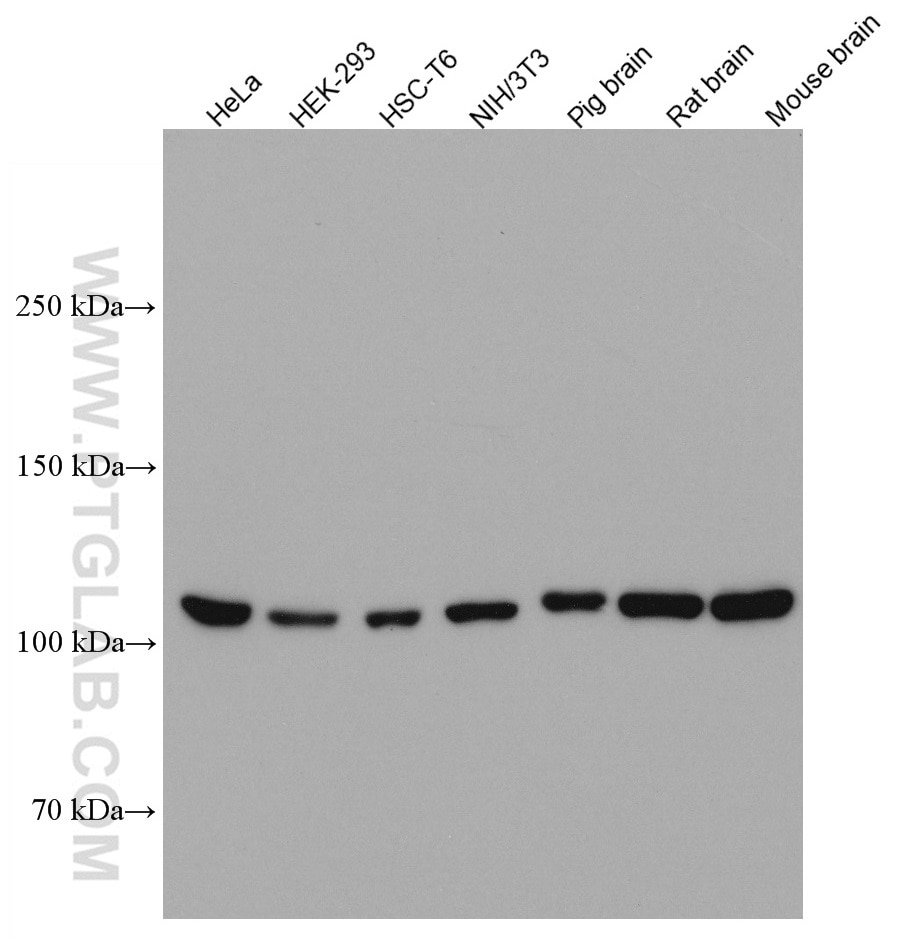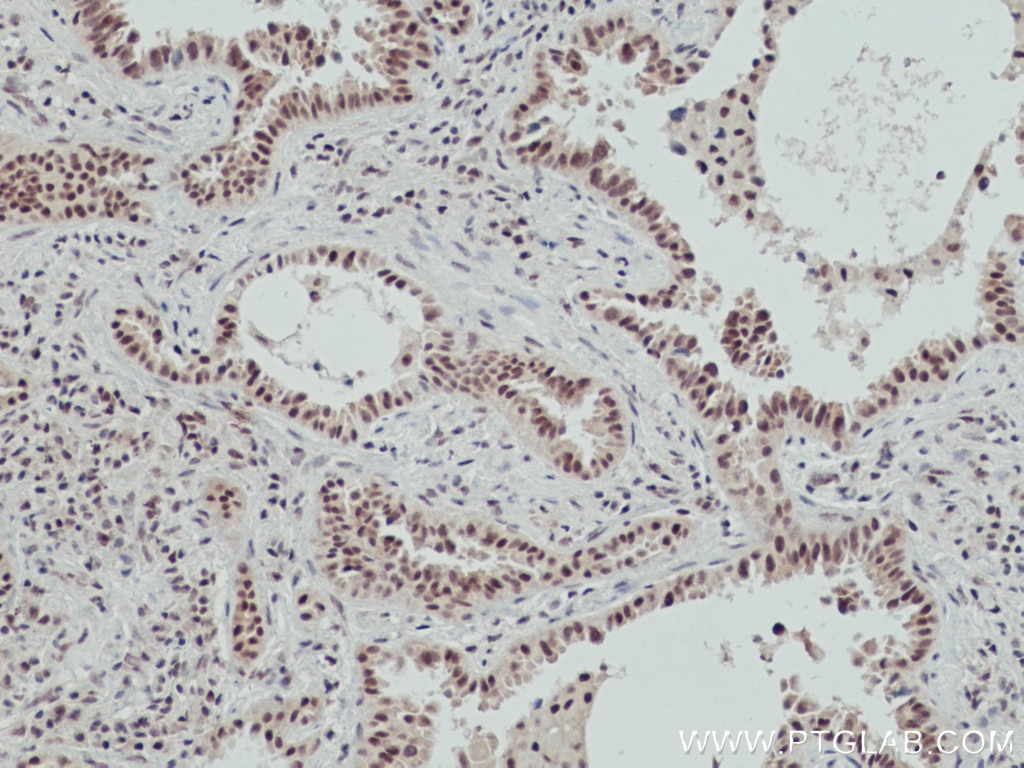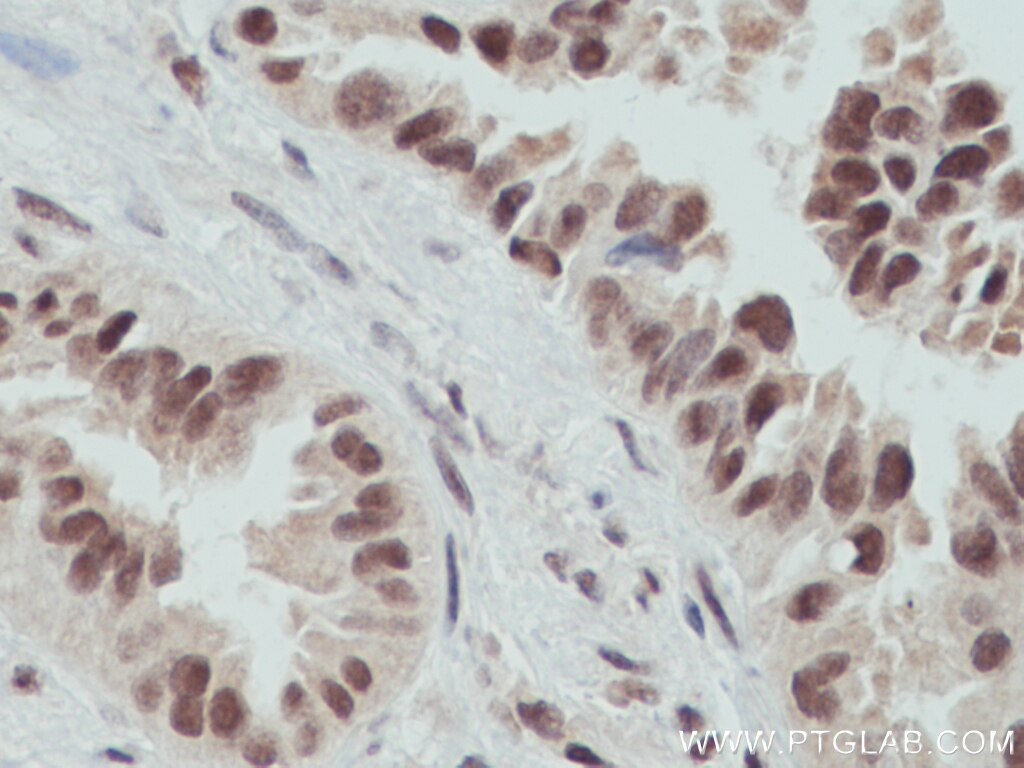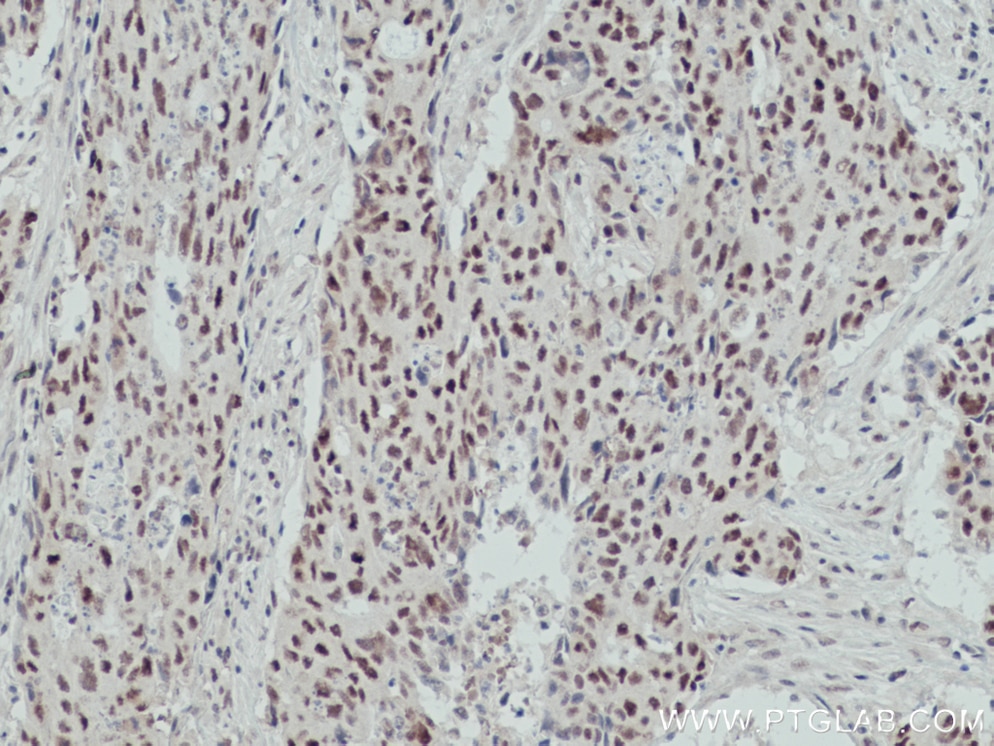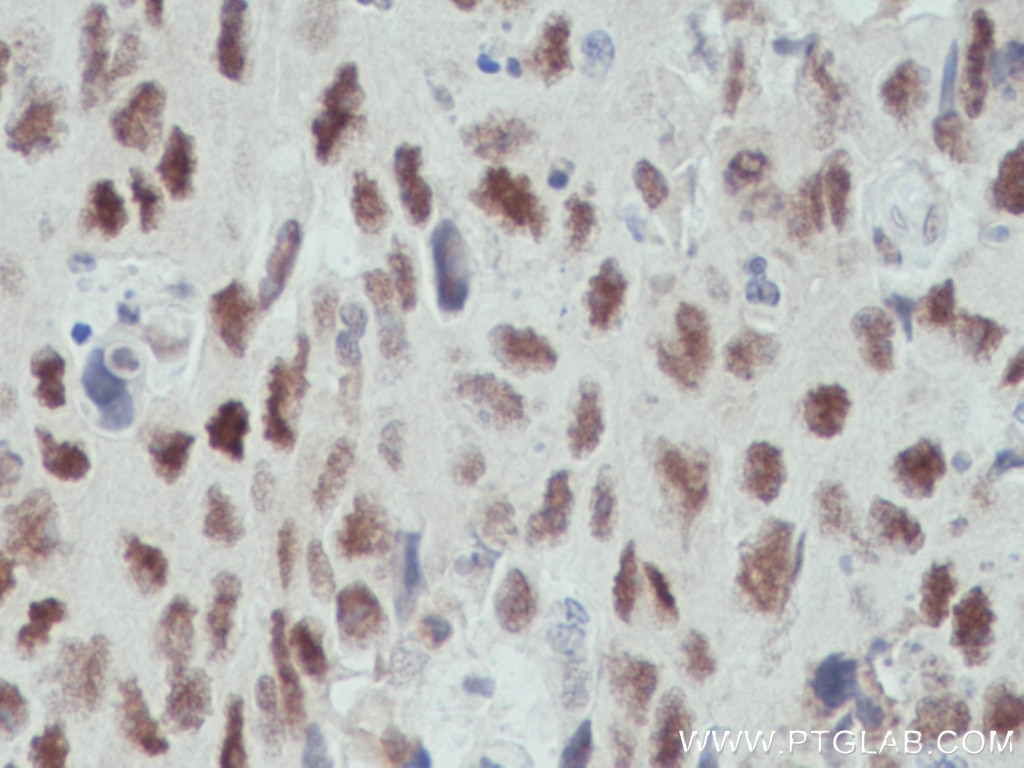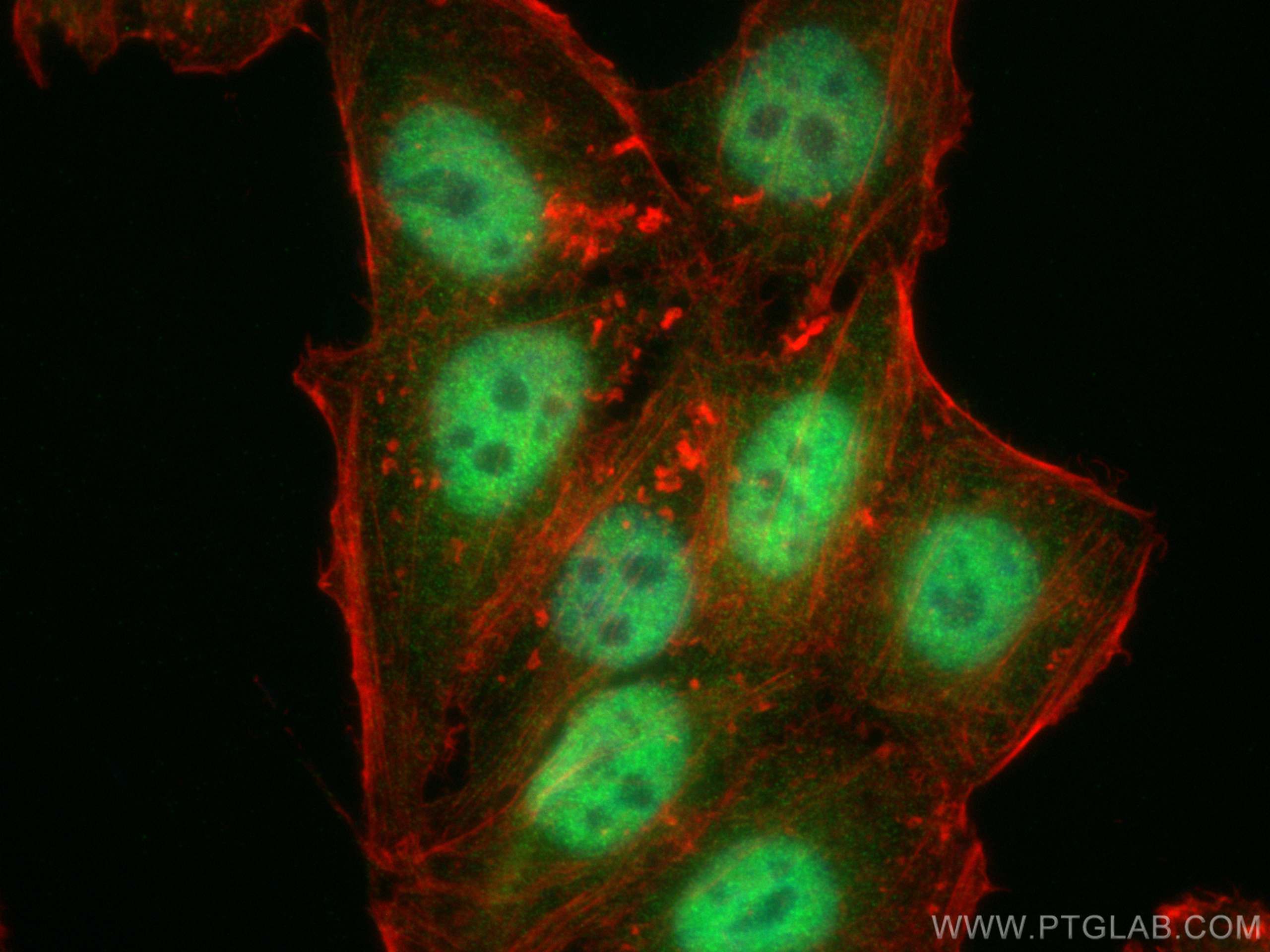- Featured Product
- KD/KO Validated
OGT Monoklonaler Antikörper
OGT Monoklonal Antikörper für IF, IHC, WB, ELISA
Wirt / Isotyp
Maus / IgG2a
Getestete Reaktivität
Hausschwein, human, Maus, Ratte
Anwendung
WB, IHC, IF, ELISA
Konjugation
Unkonjugiert
CloneNo.
2B2A6
Kat-Nr. : 66823-1-Ig
Synonyme
Galerie der Validierungsdaten
Geprüfte Anwendungen
| Erfolgreiche Detektion in WB | HeLa-Zellen, Hausschwein-Hirngewebe, HEK-293-Zellen, Maushirngewebe, NIH/3T3-Zellen, Rattenhirngewebe |
| Erfolgreiche Detektion in IHC | humanes Lungenkarzinomgewebe, humanes Kolonkarzinomgewebe Hinweis: Antigendemaskierung mit TE-Puffer pH 9,0 empfohlen. (*) Wahlweise kann die Antigendemaskierung auch mit Citratpuffer pH 6,0 erfolgen. |
| Erfolgreiche Detektion in IF | HepG2-Zellen |
Empfohlene Verdünnung
| Anwendung | Verdünnung |
|---|---|
| Western Blot (WB) | WB : 1:5000-1:50000 |
| Immunhistochemie (IHC) | IHC : 1:250-1:1000 |
| Immunfluoreszenz (IF) | IF : 1:200-1:800 |
| It is recommended that this reagent should be titrated in each testing system to obtain optimal results. | |
| Sample-dependent, check data in validation data gallery | |
Veröffentlichte Anwendungen
| KD/KO | See 2 publications below |
| WB | See 4 publications below |
| IHC | See 1 publications below |
| IF | See 1 publications below |
Produktinformation
66823-1-Ig bindet in WB, IHC, IF, ELISA OGT und zeigt Reaktivität mit Hausschwein, human, Maus, Ratten
| Getestete Reaktivität | Hausschwein, human, Maus, Ratte |
| In Publikationen genannte Reaktivität | human, Maus |
| Wirt / Isotyp | Maus / IgG2a |
| Klonalität | Monoklonal |
| Typ | Antikörper |
| Immunogen | OGT fusion protein Ag28402 |
| Vollständiger Name | O-linked N-acetylglucosamine (GlcNAc) transferase (UDP-N-acetylglucosamine:polypeptide-N-acetylglucosaminyl transferase) |
| Berechnetes Molekulargewicht | 1046 aa, 117 kDa |
| Beobachtetes Molekulargewicht | 110 kDa |
| GenBank-Zugangsnummer | BC014434 |
| Gene symbol | OGT |
| Gene ID (NCBI) | 8473 |
| Konjugation | Unkonjugiert |
| Form | Liquid |
| Reinigungsmethode | Protein-A-Reinigung |
| Lagerungspuffer | PBS mit 0.02% Natriumazid und 50% Glycerin pH 7.3. |
| Lagerungsbedingungen | Bei -20°C lagern. Nach dem Versand ein Jahr lang stabil Aliquotieren ist bei -20oC Lagerung nicht notwendig. 20ul Größen enthalten 0,1% BSA. |
Hintergrundinformationen
O-linked N-acetylglucosamine transferase (OGT) catalyzes the attachment of N-acetylglucosamine (GlcNAc) monosaccharides to the hydroxyl group of serine or threonine residues of numerous nuclear and cytoplasmic proteins and may play important roles in a large number of diverse intracellular processes ranging from translational control, transcription, transcriptional repression, INS resistance and regulation of the cell cycle. It exists as a heterotrimeric complex with two 110 kDa and one 70 kDa subunits. Recent studies have shown that O-GlcNAcylation plays essential roles in cancer formation and progression. O-GlcNAcylation as well as OGT expression was found to be significantly elevated in the cancer tissues.
Protokolle
| Produktspezifische Protokolle | |
|---|---|
| WB protocol for OGT antibody 66823-1-Ig | Protokoll herunterladen |
| IHC protocol for OGT antibody 66823-1-Ig | Protokoll herunterladen |
| IF protocol for OGT antibody 66823-1-Ig | Protokoll herunterladen |
| Standard-Protokolle | |
|---|---|
| Klicken Sie hier, um unsere Standardprotokolle anzuzeigen |
Publikationen
| Species | Application | Title |
|---|---|---|
Sci Adv FOXA1 O-GlcNAcylation-mediated transcriptional switch governs metastasis capacity in breast cancer
| ||
J Biol Chem Histone methyltransferase Dot1L recruits O-GlcNAc transferase to target chromatin sites to regulate histone O-GlcNAcylation. | ||
Oncogene Chromatin-associated OGT promotes the malignant progression of hepatocellular carcinoma by activating ZNF263
| ||
Cell Commun Signal The deubiquitinase EIF3H promotes hepatocellular carcinoma progression by stabilizing OGT and inhibiting ferroptosis |
